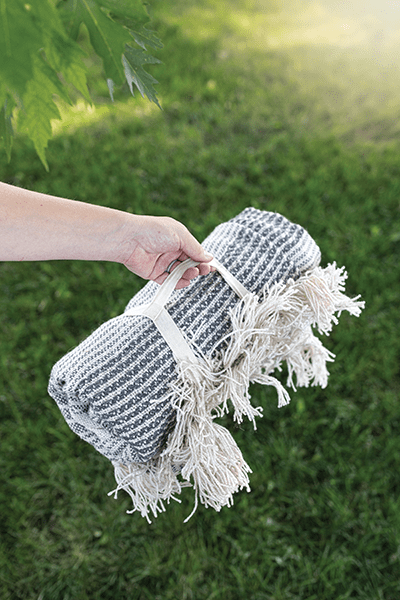To Post or Not to Post, that is the Question….

“Oh my gosh look at that photo of that dress, shoe, living room, place setting, sofa, vase, necklace, earrings (or fill in the blank with whatever it is you are drooling over at the moment). Let’s post it. It will look great on our Instagram quilt. We can use it as long as we give credit to the owner and or the brand.”
There are no words that are more wrong than those. Yet Instagram is slammed full of photos that have been “regrammed” or “reposted,” sometimes even with the help of an app. This flawed thinking can open you or your company up to a lot of business and financial heartache. Here’s how: copyright law governs the protection of original works of authorship, so photos would most definitely fit that description.
Here’s an example of how copying and using a photo without permission can increase your legal liability and cost your business money. A company used a photo, actually it was the intern who used the photo to post on their social media and website. The photo was from a major stock photo service. The company received a cease and desist notice demanding that they take down the photo and pay in excess of $50,000 in damages; the demand letter further stated that if the company did not comply that they would be sued for more and that their website would be shut down. The potential shutting down of the website could result in millions of dollars of loss.
A photo is worth a thousand words … and sometimes thousands of dollars.
As a retailer who is constantly purchasing from wholesalers and brands and looking for the next newest thing to entice your customers, it is imperative that you and your employees have a basic understanding of what is and what is not allowed as far as using photography on the web and in social media. The law is not very lenient in this area, and saying, “I didn’t know,” or “I didn’t mean to” is not going to cut it should you find yourself in a legal situation.
What does copyright law cover?
There are a few things about copyright law that everyone should know and understand. If you create something original — in this case a photo, whether you are a professional or an amateur, you own the copyrights to that photo. From the moment it was created. Copyrights vest at the moment that the idea becomes expressed in a fixed, tangible form, i.e. the photo. Whether the photo is shared or not does not affect whether you own the copyrights to the photo. You do; it still belongs to you. Now, the only way to take someone to court over your creative work, in this case a photo, would be to register that work with the US Copyright Office. But we will leave the details of that for another day. According to federal law, there are 5 exclusive rights that a copyright owner has. These are the right to reproduce, derivative works, distribution, publicly display, and sell, transfer, or license their works. Examining each of these will help understand why you can’t just take that photo of your favorite designer and screenshot it and post it on your Instagram wall.
The right to reproduce. The right to reproduce means that you as the copyright owner can copy your own work, and you can say who else can copy your work. So if you want to take a photo and copy ten times you can. If a business owner wants to copy your photo once or one hundred times, and permission was not granted, that is a copyright violation — also known as infringement. Let me be clear; it is against the law.
The right to make derivative works. If you take a photo and then decide that a detail of that photo is what you will use to make prints that you can sell. That is what is known as a derivative work because it derives from the original. If another person decided to take that same photo, the original one, and take the detail of that same photo and copy it. That is a copyright violation. They could be in big trouble.
The right to distribute. The owner of the photo or creative work has to right to determine if a work will be distributed and who or who cannot distribute that work. If you copy a photo of a brand’s product from their Instagram wall, and do not get their permission, and then share it on your wall to induce someone to purchase products at your business that is copyright violation. You are putting yourself in a precarious position.
The right to publicly display. The copyright owner has the exclusive right to decide if their work will be publicly displayed and who may do so. So if you copy a photo from someone else and post it without their permission even if not for commercial gain, that is a copyright violation. This is putting yourself at risk.
The right to sell, transfer, or license their works. The owner of the copyright can sell, transfer or license the right to that copyright. So for example the owner of the photo can sell or transfer the right to the photo. They can also license the photo. If you copy the photo from someone who has legally licensed that photo, that is a copyright violation. You could face legal trouble from both the licensee and the licensor.
What is permissible?
Obtain permission. If there is a photo you would like to use, get permission in writing. The owner of the photo may say yes, in which case you are golden. The photo owner may say no; you are no worse off than you were, and you are not in jeopardy of legal problems either.
Licensing. Licensing is devised specifically to detail how someone who doesn’t own the rights to a creative work may use that creative work without infringing. If you are planning to use photos repeatedly or for commercial gain, then maybe a license is the way to go.
Fair use: This is an area that can be tricky. Fair use is used more as a defense than as a permissible way to use another’s copyright. However, those works that are found in the public domain can be used. Those are works that are used for parody, criticism and critique, or scholarship and research. You should never use a work under this doctrine without consulting an experienced intellectual property attorney. They can advise you on whether your proposed use is advisable.
Keep in mind, just because it’s on the internet or social media does not mean that it is fair game to be used by you. If anything that is even more of a reason to perform your due diligence and make sure either you have permission or the right to use the photo. If you are not sure, err on the side of caution, and do not post. Use your own photos, or use photos that you have paid someone to take. It may be less convenient and more aggravating to be diligent about using photos but you will rest better knowing that you are not in danger of having to pay thousands of dollars in damages.
DISCLAIMER: The materials available in this article are for informational purposes only and not for the purpose of providing legal advice. You should contact your attorney to obtain advice with respect to any particular issue or problem. Use of and access to this website do not create an attorney-client relationship between Angie Avard Turner Law and the user or browser.























